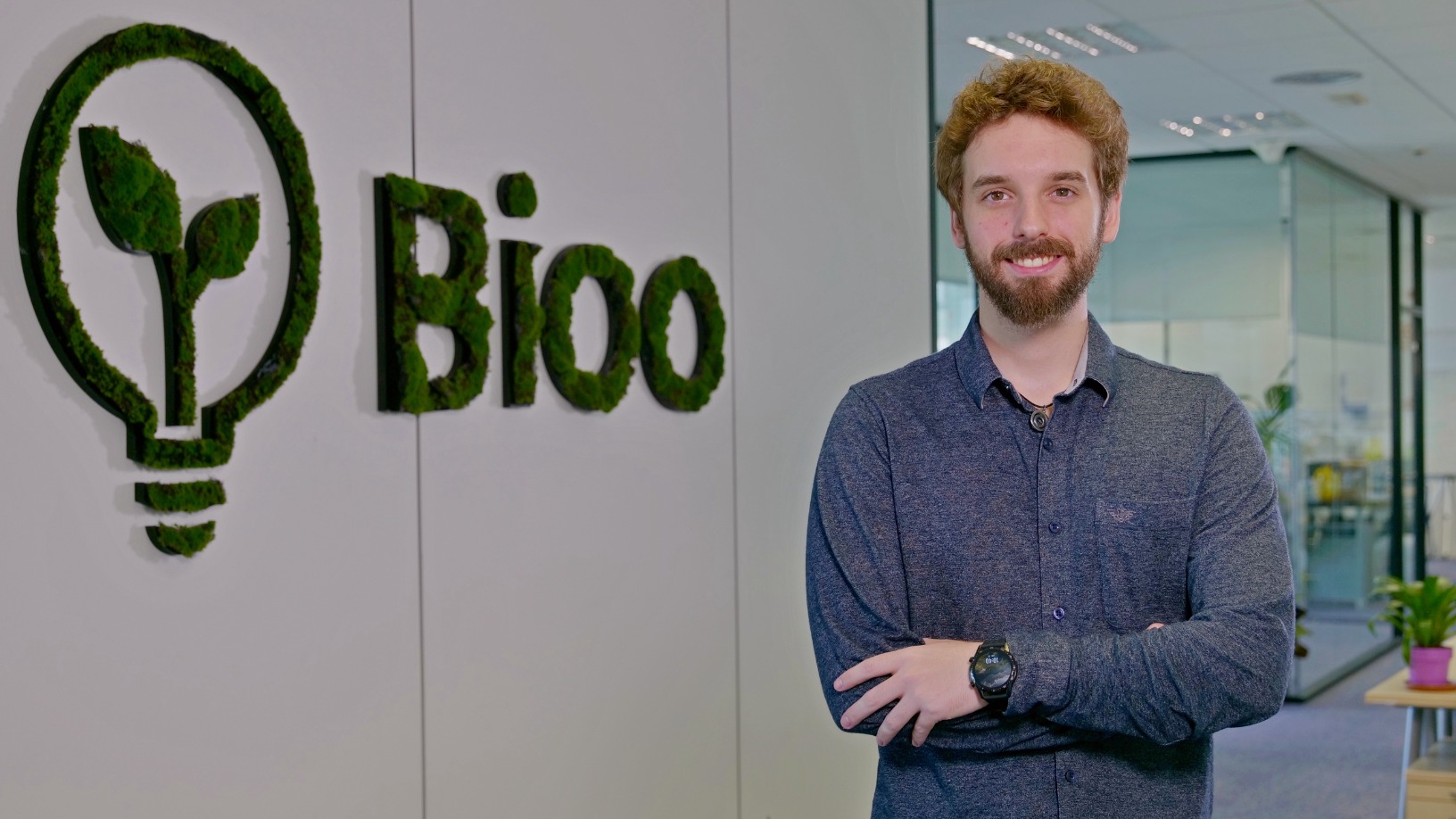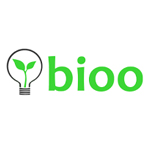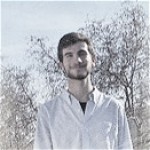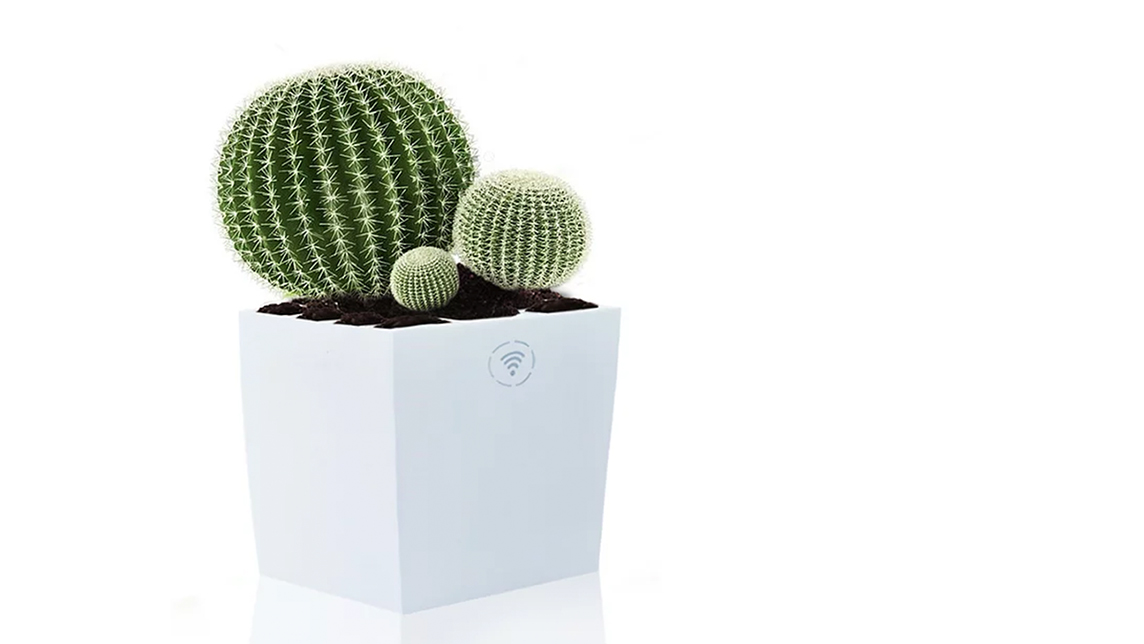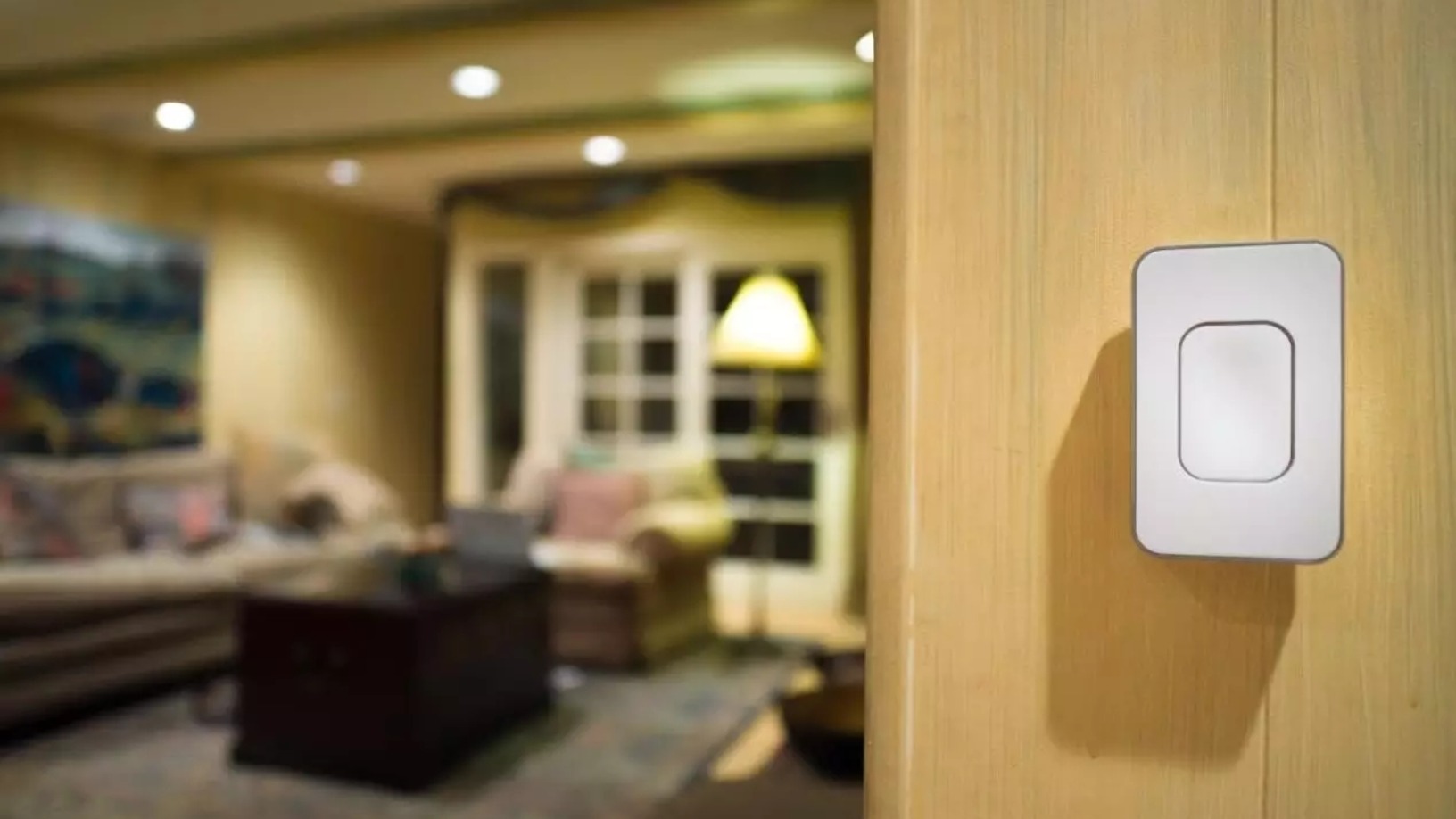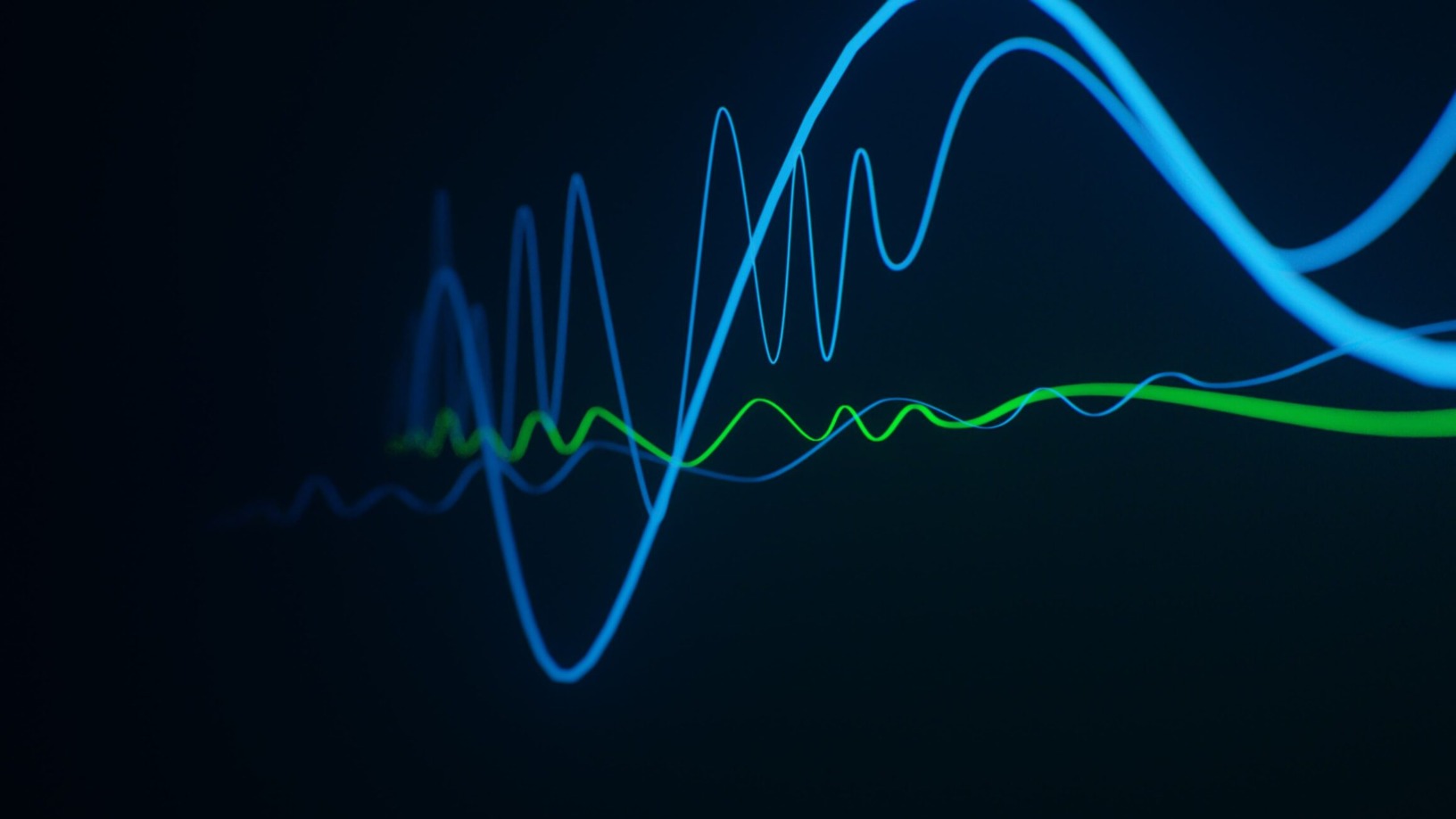It all started in 2016, when Spanish startup Bioo launched a range of flower pot phone chargers that quickly sold out on Indiegogo. That was just the beginning, “a small representation of the things that we can do,” says Bioo CEO and co-founder Pablo Vidarte.
Named to the Forbes 30 Under 30 list in 2017 under the Industry, Europe category, the young engineer is a thinker, dreaming big and achieving even bigger goals. Vidarte started to code when he was just a kid. At aged 16, he started his first entrepreneurial project, improved the performance of NASA-made engines by 60% and even joined a military technology competition.
In 2015, the engineering student in Barcelona began developing microbial fuel cells (MFC) from plants because energy had always been his passion. The MFC technology was first discovered by NASA in early 2000. Instead of using lithium in conventional batteries, MFCs make use of microorganisms in the soil to produce bioelectricity. Bioo’s quest is to develop MFC to a higher level, building cities of the future where home automation and nature coexist in a whole new ecosystem that generates energy organically.
The biotech firm secured €2.5m in initial funding added up from various EU grants, Horizon 2020 and Future Emergent Technologies (FET). Three subsequent funding rounds netted over €2.6m more from listed companies, energy and biotech corporations. Bioo is now looking to close a new investment round to launch new products, develop new projects and expand existing operations to transform even more buildings, houses and urban environments.
In an interview with CompassList, Vidarte explains how he envisions the world of tomorrow when nature will finally return to power.
The following Q&A has been edited for length and clarity.
Bioo’s product offer has evolved significantly over the past years, from a flower pot charger to plants that can transform into biological switches. You also grew strongly and won international recognition. How did you improve and scale Bioo commercially?
We have focused on two areas – the human environment and the agricultural field – thinking about the products that could make a greater impact. Several products that we'll be launching during the next months are urban furniture generating energy out of nature itself – even benches where you can sit down and charge your phone. We have also a plant that’s basically a biological switch made of translucent concentrate.
For the agriculture sector, we are creating solutions that power sensors and automatic irrigation systems. Chemical batteries won't be needed anymore, nor solar panels, because we're using biological batteries that are literally plugged into the ground. Why we've done all of this is to transform our world into a biotech world and these are the ways to do it more efficiently.
Our model has always been to license the technology to other companies. We want to produce bigger changes, creating the core technology and then scaling it as much as possible. The other prototypes were not easy to scale.
Can you share more details on the cost of your technology? What are the main advantages compared to conventional power systems?
Chemical batteries need to be replaced frequently, whereas we provide batteries that don't need replacement. People think solar panels are the solution, but actually, only 10% of the sensors used in agriculture today are making use of it.
That’s because solar panels are expensive and not efficient. They need to be placed to a certain height, about 60 cm. They also have to avoid shadows, which in some agricultural areas it’s nearly impossible. You also have to deal with dust, rainfalls, wind, and even prevent them from getting stolen, which happens a lot.
Our batteries have the same cost as a chemical battery. Once you place it in the ground, they only need an irrigated field. Their operation is totally natural and is being fueled by the land that farmers are already taking care of.
Regarding the manufacturing, is it done in-house or outsourced? How scalable is this in the future?
For now, all our production takes place in Europe; the location depends on the type of product. One product is made in Portugal, while the majority are made in Spain. We want to be a European technology company and that means manufacturing our products here.
Our business model is a licensing model, so if companies abroad want to work with us and create their own products, it will be pretty much open to everyone.
What materials are you using? What about their sustainability? Is there any sort of discharge into the ground, especially in terms of toxicity?
The materials used for the battery case have programmed biodegradability, which means the case will biodegrade in 20 years if the product has to last for 20 years.
Unlike chemical batteries, in which there’s a redox reaction between electrodes, we do a redox reaction between natural microorganisms and the organic matter; something that happens on any kind of soil, with or without the battery. Once the organic matter is decomposed, we obtain a free electron and hydrogen ions that combine with oxygen from the outside to generate water. So, water is the byproduct.
What is the amount of water produced during the process?
The byproduct of the reaction is very little, but it's kind of the most ideal one because it is made just of water. It's also very convenient because the batteries used, for example, in parks and gardens, can save up to 60% of the irrigation costs. This is mostly due to the fact that our panels are able to preserve a lot of moisture inside; even if you cannot recycle it internally, it makes a great saving.
Are your products already on the market? Have you run any pilots, and if so with whom?
Currently, Bioo Education, and Bioo One and Two are on the market. Bioo Lux and Bioo Bench will be officially launched next month; we already have clients for them. The Bioo Panel and the Bioo Sensor are being sold to clients just for pilot testing. For the sensor, we are working with the Crop Science Division of Bayer. We have contracts with them as they want to replace their sensors with ours.
What is Bioo Education?
Bioo Education allows people to create their own biological batteries. It all started with schools, and we later introduced it to companies. This way, anyone in a company can learn how to use this new technology and it's a great way to train people in sustainability and new concepts of energy.
You are going to build the first domotic (smart) park in the world. Where is this going to happen and when? Do you have any sort of partnerships or agreements with city halls that support the initiative?
We've worked with several cities like Hamburg, Boston and Paris, and we're trying to add as many cities as possible. We are currently testing all our technologies in the Biotech Botanical Garden of Ibiza; there domotics are being used with plants and energy is being generated through nature.
Our aim is to create a living library where humanity's memory is stored within nature. Imagine touching a plant and hearing voice messages of people that want to leave their footprints for present and future generations.
Why did you specifically choose the Biotech Botanical Garden in Ibiza?
We use Ibiza as a core, because it's just 30 minutes’ flight from our office in Barcelona, and also because of the amount of tourism from all around Europe which is not even comparable to Barcelona. Ibiza is also very green and pretty different from the coast. There, we are rescuing extinct species or species that were thought to be extinct. We also wanted to replicate very different environments on an island that is not artificial.
You have patents in Spain. Which parts of the technology are patented?
Our biological batteries are adaptable to any kind of external environment, and this is one of the things we're patenting, being able to have a very low variability regardless of the soil. We are also protecting the combinations of microorganisms we use and the whole mechanics.
In order to be sure that everything we do is truly innovative, we are working with nine different entities around the world leaders in the sector: University of Tel Aviv, a leader in energy and agriculture; CNRS, a leader in biological batteries applied to internal environments; Italian Institute of Technology (IIT) and CSIC, the Spanish National Research Council and the Eurecat Technology Center.
You are looking to close a new funding round in November. How the money will be invested? Are you looking to hire new staff?
It will be mainly invested in operations and commercialization. We recently expanded the team, going from 15 to 20 people, most of these new hires are in sales and operations.
To what extent has Covid affected your business?
We launched our first commercial line at the end of 2019, specifically focused on transforming cities into biotech cities. It all went pretty well in the first 2–3 months, but suddenly cities were closed and everything stopped. We also had projects with clients like Levi Strauss and BMW, where we provided our line of installations to transform their shops. When the pandemic hit, the whole thing had to be paused.
So we focused on the agricultural field. We created a team of great allies and clients around the world, which included major agriculture corporations. We signed contracts and improved the product and technology significantly.
One of the main reasons why our company didn't close is because we could fit within the definition of an agricultural company. We have just started to focus again on urban environments, and we're crossing fingers for everything to be as we expected it to be.
Where do you see yourself five to eight years from now? What excites you and where do you think your contributions and experience would offer the greatest value, especially in the energy field?
I'm doing all this because this technology has the ability to literally shape the world and our minds. Imagine cities no longer surrounded by concrete walls but nature. I wanted to create something that prevents the world from getting worse, reviving it by bringing nature to people. I think this is one of the things we're going to see in the next 5 to 10 years, where everyone will have this technology in their own gardens.
